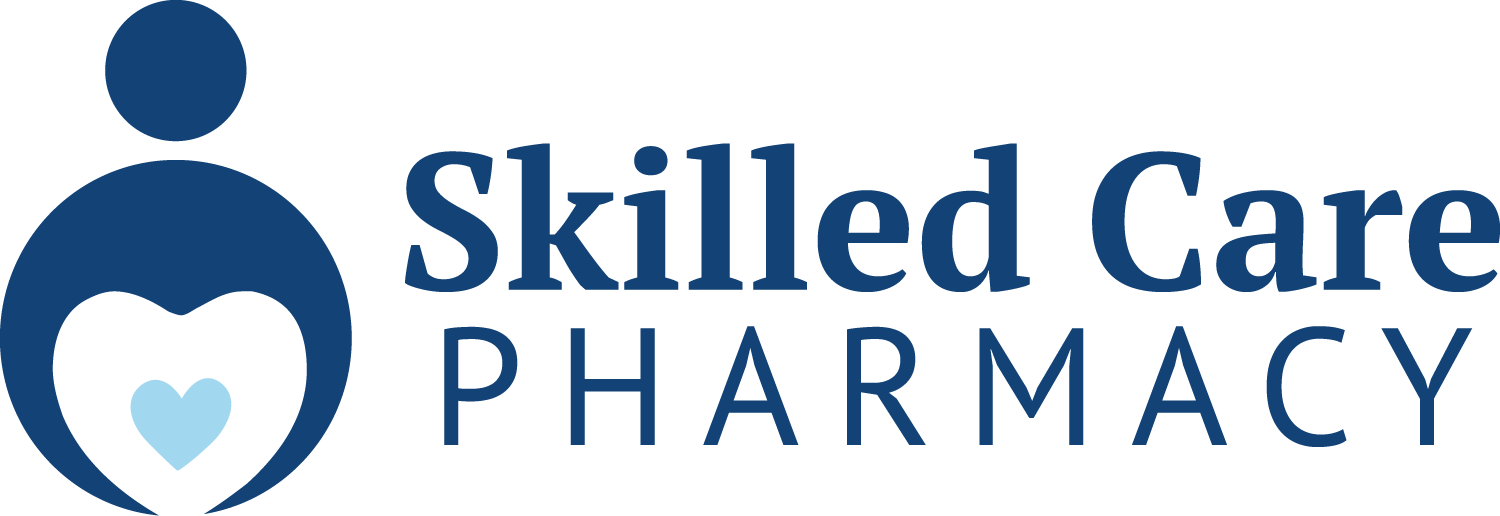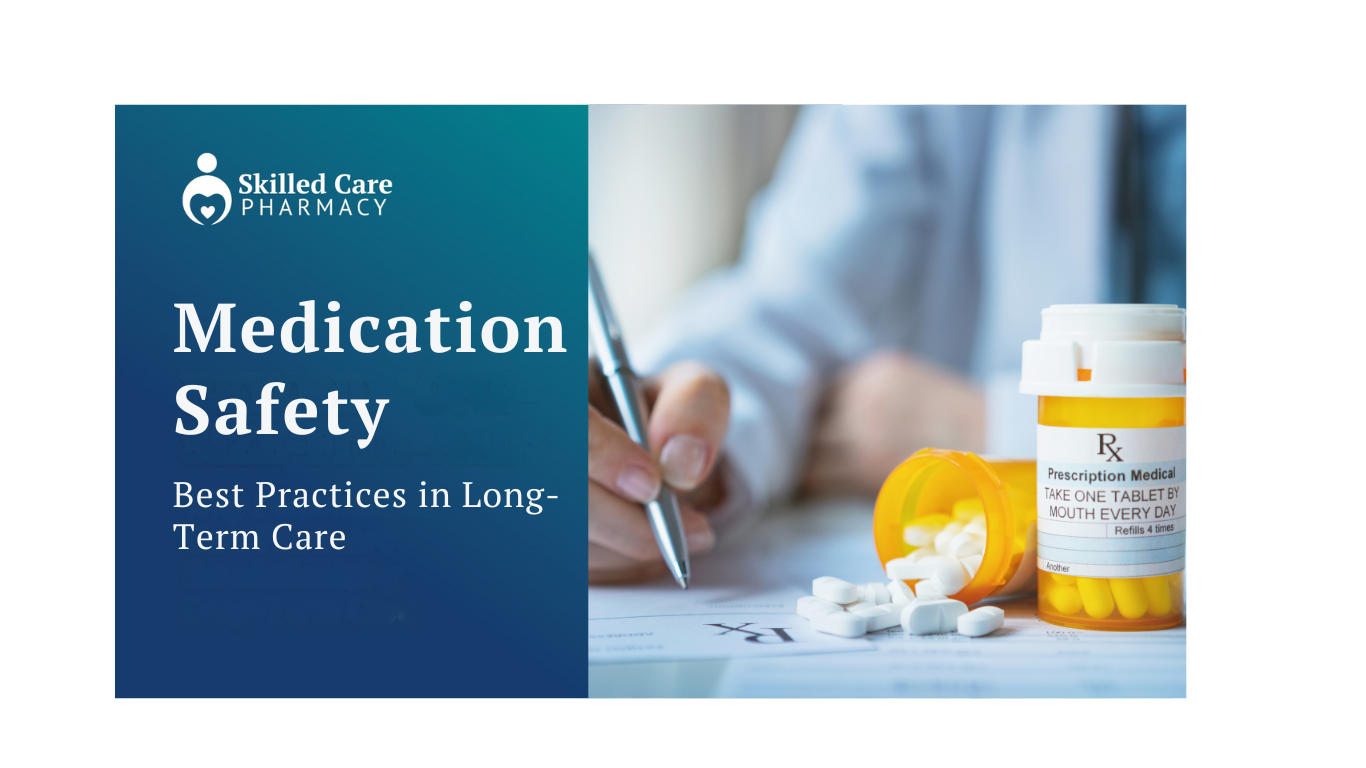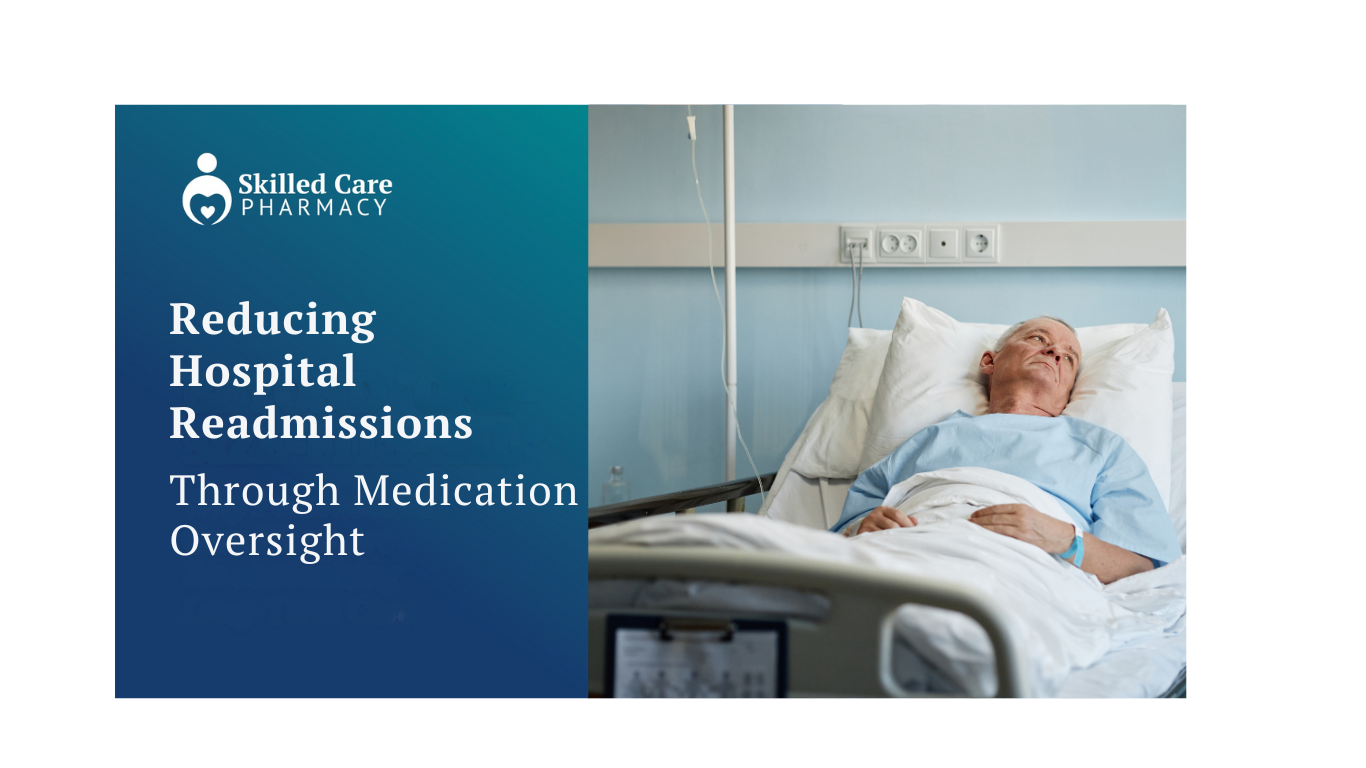Explore safe and effective practices for dementia medication management in long-term care facilities, including monitoring, communication, and pharmacy support.

Caring for residents with dementia in long-term care (LTC) facilities requires more than compassion—it demands precision, coordination, and vigilance in medication management. As Alzheimer’s disease and related dementias progress, residents often experience changing needs that make medication safety both challenging and critical.
At Skilled Care Pharmacy, we partner with LTC teams to ensure every dose supports the resident’s well-being while minimizing potential risks. Here are best practices your team can apply to improve dementia medication management.
1. Conduct Regular Medication Reviews
Residents with dementia often take multiple prescriptions to manage cognitive symptoms and related health conditions. Over time, these can overlap, causing unwanted side effects such as confusion, dizziness, or increased fall risk.
Regular medication reviews—conducted in collaboration with pharmacists—help:
- Identify duplications or interactions.
- Evaluate the continued need for each medication.
- Adjust dosages to the resident’s current health status.
By staying proactive, facilities can reduce unnecessary medications while maintaining symptom control.
2. Monitor Behavioral and Cognitive Side Effects
Some medications used to treat dementia, like antipsychotics or antidepressants, may cause sedation or worsen confusion if not carefully monitored. Nursing staff should document behavioral changes and promptly communicate them to the care team and pharmacy.
A consistent reporting system ensures that no warning sign goes unnoticed and that medication changes are guided by evidence—not assumptions.
3. Encourage Interdisciplinary Communication
The most effective dementia care happens when all team members—nurses, caregivers, physicians, and pharmacists—communicate openly.
Facilities should establish clear channels for updates and feedback, especially when:
- Medications are added or discontinued.
- Residents show changes in appetite, sleep, or mobility.
- New lab results affect treatment options.
Pharmacists play a key role in interpreting drug-related issues and helping staff respond quickly to new developments.
4. Prioritize Non-Pharmacological Approaches
Medication should never be the only strategy in dementia care. Activities such as music therapy, aromatherapy, and structured routines can reduce anxiety and agitation, often decreasing the need for behavioral medications.
When these approaches are integrated with careful medication oversight, residents experience a higher quality of life and fewer side effects.
5. Train and Empower Staff
Education is the cornerstone of safe medication use. Facilities should provide ongoing training on dementia-related drug protocols, side-effect management, and communication with pharmacy partners. Skilled Care Pharmacy offers in-service training to help LTC teams stay compliant and confident in their care.
In Summary
Dementia medication management requires vigilance, teamwork, and compassion. By combining pharmacy expertise with thoughtful care practices, LTC facilities can enhance safety, reduce adverse events, and provide residents with the stability they deserve.
Skilled Care Pharmacy remains dedicated to helping you achieve that balance—because safe, personalized care starts with collaboration.




